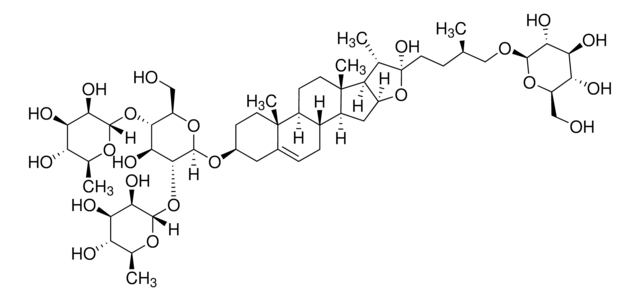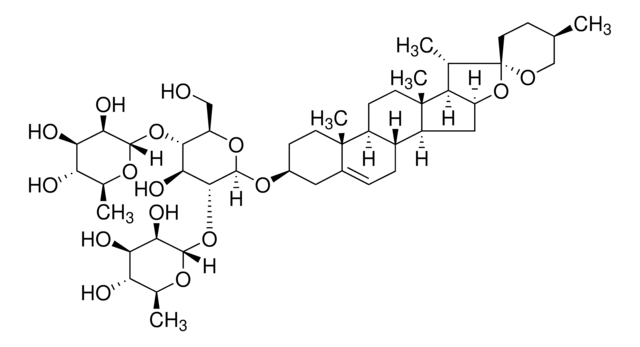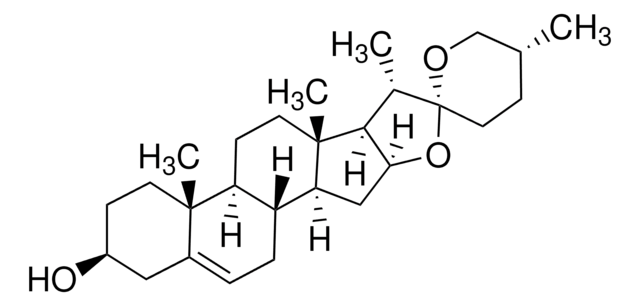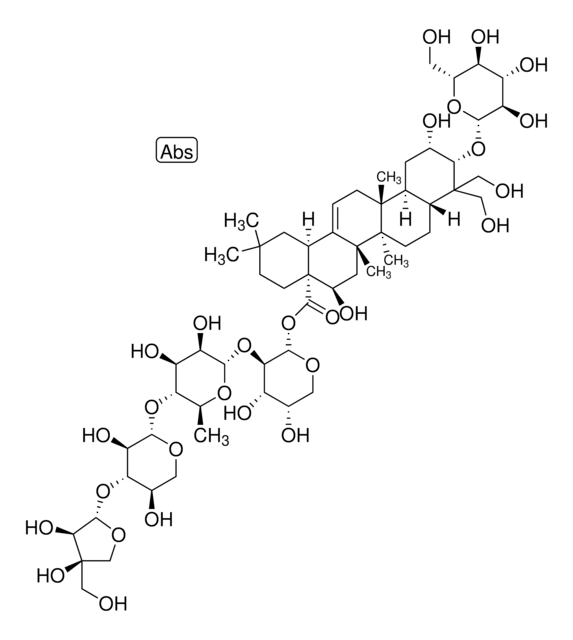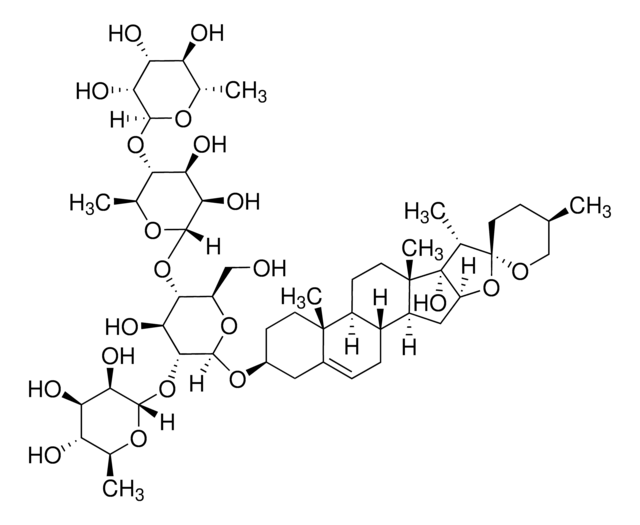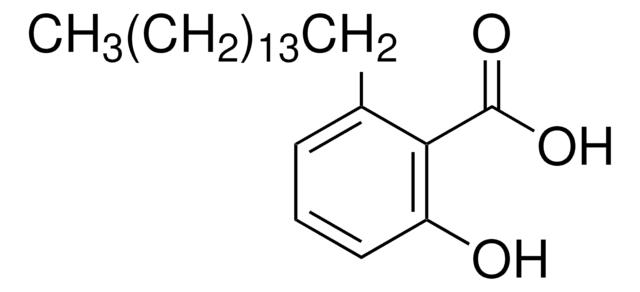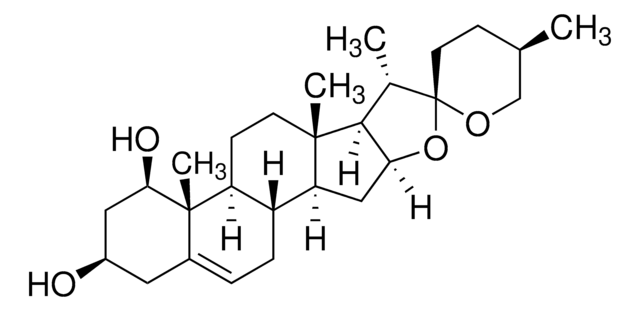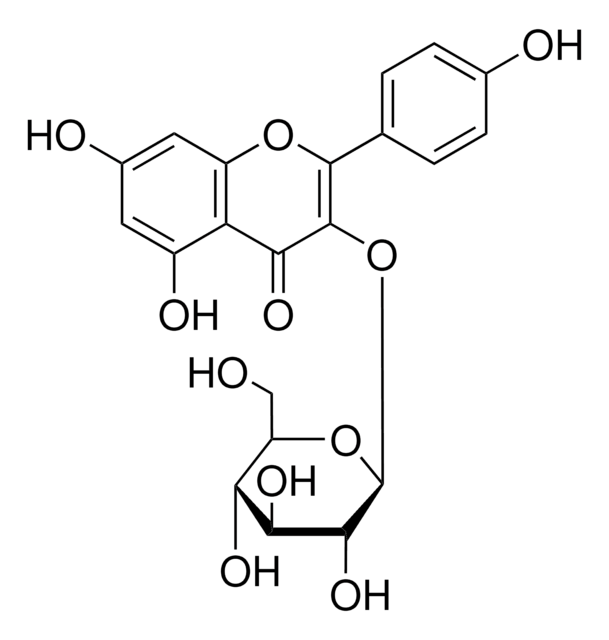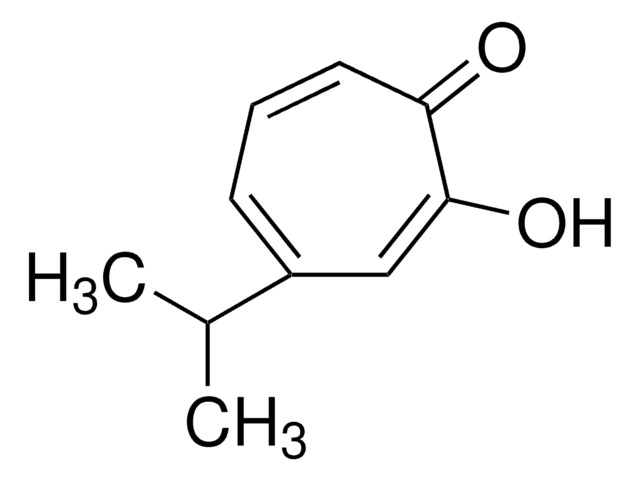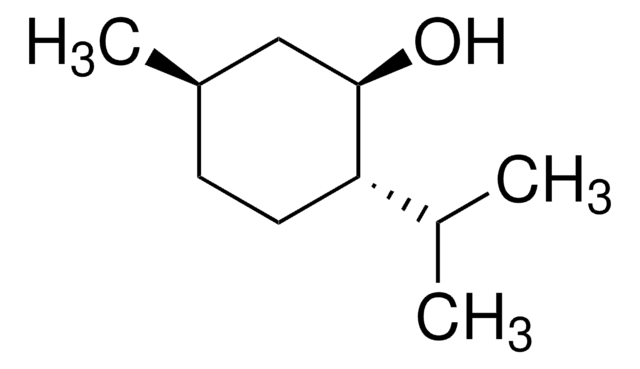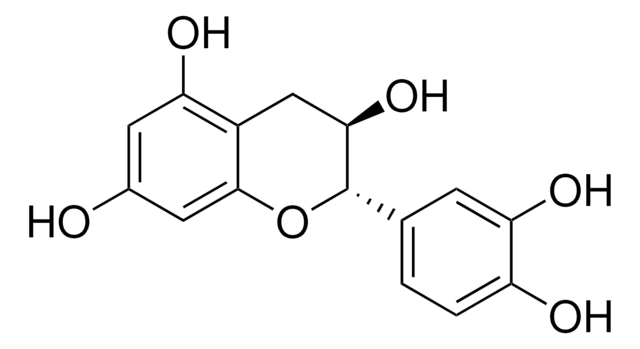G0299
Protodioscin
from Dioscorea spp., ≥98% (HPLC)
Synonyme(s) :
Furostanol I
About This Item
Produits recommandés
Source biologique
Dioscorea spp.
Essai
≥98% (HPLC)
Forme
powder
Application(s)
metabolomics
vitamins, nutraceuticals, and natural products
Température de stockage
2-8°C
Chaîne SMILES
O1[C@H]([C@@H]([C@@H]([C@H]([C@@H]1C)O)O)O)O[C@H]2[C@@H](O[C@@H]([C@H]([C@@H]2O)O[C@@H]9O[C@H]([C@@H]([C@H]([C@H]9O)O)O)C)CO)O[C@H]3CC[C@@]4([C@@H]5[C@H]([C@H]6[C@@]([C@@H]7[C@@H](O[C@]([C@H]7C)(O)CC[C@H](CO[C@@H]8O[C@@H]([C@H]([C@@H]([C@H]8O)O)O)CO)C)C6)
InChI
1S/C51H84O22/c1-20(19-65-45-39(60)38(59)35(56)30(17-52)69-45)9-14-51(64)21(2)32-29(73-51)16-28-26-8-7-24-15-25(10-12-49(24,5)27(26)11-13-50(28,32)6)68-48-44(72-47-41(62)37(58)34(55)23(4)67-47)42(63)43(31(18-53)70-48)71-46-40(61)36(57)33(54)22(3)66-46/h7,20-23,25-48,52-64H,8-19H2,1-6H3/t20-,21+,22+,23+,25+,26-,27+,28+,29+,30-,31-,32+,33+,34+,35-,36-,37-,38+,39-,40-,41-,42+,43-,44-,45-,46+,47+,48-,49+,50+,51-/m1/s1
Clé InChI
LVTJOONKWUXEFR-UEZXSUPNSA-N
Vous recherchez des produits similaires ? Visite Guide de comparaison des produits
Description générale
Application
Actions biochimiques/physiologiques
Code de la classe de stockage
11 - Combustible Solids
Classe de danger pour l'eau (WGK)
WGK 3
Point d'éclair (°F)
Not applicable
Point d'éclair (°C)
Not applicable
Faites votre choix parmi les versions les plus récentes :
Déjà en possession de ce produit ?
Retrouvez la documentation relative aux produits que vous avez récemment achetés dans la Bibliothèque de documents.
Les clients ont également consulté
Notre équipe de scientifiques dispose d'une expérience dans tous les secteurs de la recherche, notamment en sciences de la vie, science des matériaux, synthèse chimique, chromatographie, analyse et dans de nombreux autres domaines..
Contacter notre Service technique